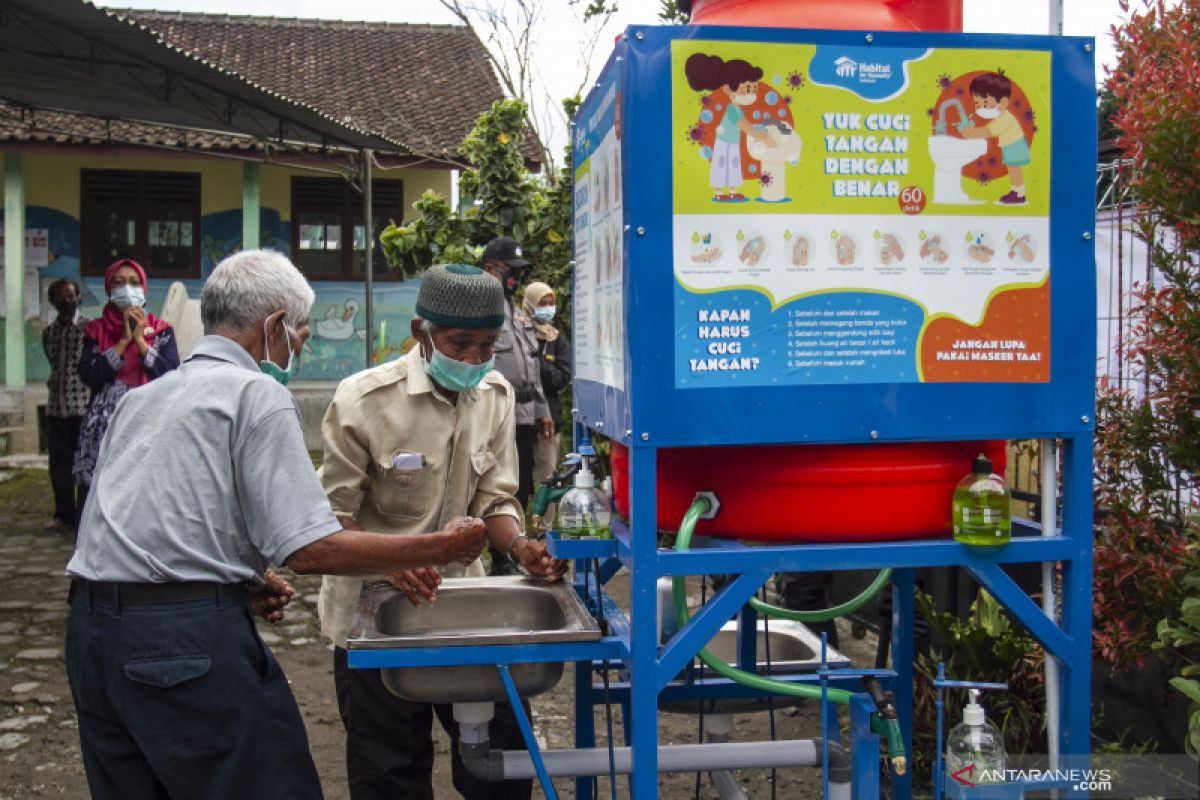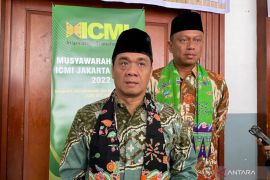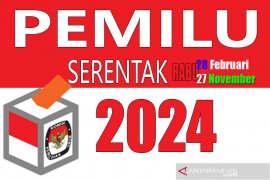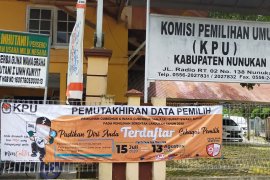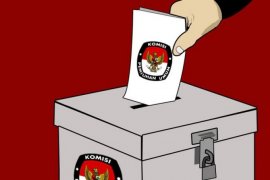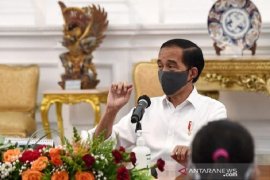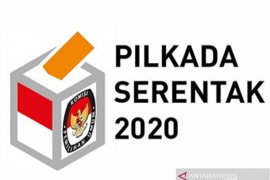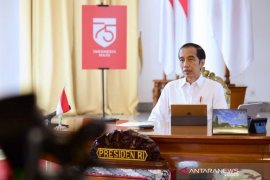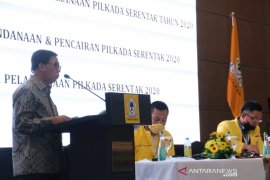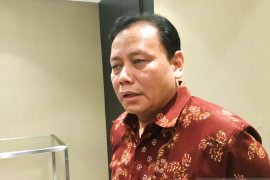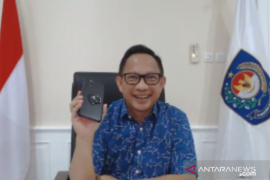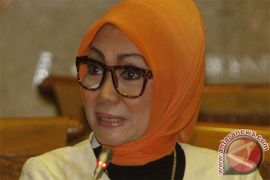A total of 5,292 fresh cases were recorded in a span of 24 hours on December 8, 2020, bringing the count to 586,842, and the death toll to 18 thousand.
On December 3, 2020, Indonesia reported 8,369 fresh cases, the highest ever recorded in 24 hours, with Papua province contributing 1,755 cases; West Java, 1,648 cases; and, Jakarta, 1,153 cases.
Despite instructions to implement health protocols, polling officers for the 2020 Pilkada have not been spared by the virus. In Tasikmalaya, West Java, the General Election Commission (KPU) confirmed on December 8, 2020 that results of rapid tests conducted on 36,078 polling officers found 220 officials reactive to COVID-19.
“The results of yesterday’s rapid tests declared 220 officers reactive, and they have now been isolated,” Tasikmalaya General Election Office (KPU) Commissioner Isti'anah stated.
The Tasikmalaya KPU has made it mandatory for all election administration officers to undergo rapid tests to confirm they are in sound health, Isti'anah noted.
The Tasikmalaya KPU commissioner stated that officers with reactive rapid test results have been immediately asked to take swab tests and self-isolate while awaiting test results.
“Those found reactive are in good health, and they have now been isolated. If the swab results are negative, then they are being allowed to work. However, if they are positive, they cannot work,” he stated.
Isti'anah said that if swab test results of the reactive officers do not come by polling day, voting would nonetheless be held by optimizing the number of officers available, as it would be difficult to find a replacement.
Related news: Rapid test results indicate 220 polling officers reactive to COVID-19
Related news: 11 members of Ngawi poll committee contract COVID-19
Earlier, 11 election administration officers in Ngawi, Central Java province, had tested positive for the novel coronavirus disease.
The Ngawi General Election Office (KPU) had conducted COVID-19 rapid tests on 17,636 officers, following which 67 were declared reactive and sent for swab tests, while the rest were still waiting for results. Those infected with COVID-19 will not be able to report for duty on polling day, said officials.
There have also been reports of polling officers and candidates testing positive for COVID-19 in other regions. Despite the confirmed cases, the elections for Ngawi district head and deputy district head will proceed as scheduled, officials said.
Indonesia, the world's third-largest democracy after the US and India, will hold the regional head elections in 270 regions comprising 9 provinces, 37 cities, and 224 districts. The campaign period lasted from September 26 to December 5, 2020.
A total of 734 nominee pairs have registered as candidate pairs for the polls.
On November 11, 2020, Kumparan online media had quoted Saydiman Marto, who is serving on the home affairs ministers staff, as saying that four candidates have succumbed to COVID-19 and other ailments, 24 have contracted COVID-19, while 20 others have recovered from the coronavirus disease.
State Enterprises (BUMN) Minister Erick Thohir earlier reminded the public to remain vigilant to stop the spike in the number of COVID-19 cases in Indonesia.
"We all have to become more vigilant in the wake of a spike in the number of cases. This means many of us have started to become negligent," Thohir noted in his statement recently.
Related news: Continued public vigilance amid spike in COVID-19 cases: Minister
Thohir, concurrently chief executive of the Committee for COVID-19 Handling and National Economic Recovery (KPCPEN), reiterated that his office remained committed to playing an active role in handling the COVID-19 pandemic.
"We all know and believe that human life is more valuable than anything," he emphasized.
The government is currently striving to provide safe, effective, and quality vaccines at affordable prices, according to the minister.
"Vigilance and vaccination are concrete efforts and collective struggles to protect ourselves and the country and to end the pandemic, which necessitates support from all components of the nation. Now, let us continue to guard all of us. Do not get tired or be careless. Insya Allah, our efforts are a blessing," he stated.
Strict application of health protocols is being considered key for the successful implementation of the pilkada this year.
Preparations for the simultaneous pilkada have been mainly related to guaranteeing security and strict application of health protocols, Sigit Pamungkas, senior expert of the Presidential Staff Office’s (KSP's) Deputy V, said.
“The regional elections are going to be held in a matter of days, while the number of COVID-19 cases has continued to fluctuate. Hence, election organizers should implement strict health protocols as designed,” Pamungkas remarked.
Pamungkas, former commissioner of the General Election Commission (KPU), stated that pilkada executors must remain firm in ensuring that health protocols are applied strictly during local elections.
"It is necessary to strengthen coordination among all parties involved to ensure that the health protocols are applied strictly," he remarked.
Pamungkas recalled that President Joko Widodo had earlier given four instructions on the implementation of regional elections. The most important part of the President's directive was that the elections be direct, general, free, honest, fair, and safe from COVID-19.
The Indonesian General Elections Commission (KPU) has been implementing health protocols at every stage of the elections, right from the campaigning period to the time of voting.
The agency has also issued the General Election Commission Regulation (PKPU) that regulates the implementation of regional elections in the midst of the COVID-19 pandemic.
In addition, the Election Supervisory Board (Bawaslu) has asked those participating in the pilkada to apply health protocols to safeguard against COVID-19 transmission, as the agency has detected several violations during campaign activities.
Abhan, the Bawaslu chairman, stated here on Monday that the violations include gatherings of over 50 people, breaching social distancing norms, and flouting the rule on face marks.
The heaviest sanctions for violating the protocols include dissolving campaign activities or cutting short the campaign schedule, though there will be no disqualification, he remarked.
Abhan clarified that in accordance with the existing Pilkada Law, the violators of health protocols will not be disqualified from the election race.
Clearing the air over the likelihood of delaying the implementation of this year's pilkada in the wake of a spike in the number of COVID-19 cases in Indonesia, Abhan noted that the General Election Commission (KPU), Bawaslu, government, and Parliament are determined to hold the elections on December 9, 2020.
Based on the latest revelation by the COVID-19 task force, the number of COVID-19 cases have tended to decrease in regions holding pilkada, he claimed.
The Home Affairs Ministry on November 24, 2020 also revealed that the rate of health protocol violations during the last week of the campaign period of the pilkada was successfully clamped down to 2.2 percent.
"It has been successfully suppressed to a relatively low level, and the compliance of candidate pairs, success teams, community, and all stakeholders is getting better," Kastorius Sinaga, a special staff to the Minister of Home Affairs for Politics and Media, noted.
The level of health protocol violations during the face-to-face campaign period has been decreasing, according to Sinaga.
"The (rate of) violation is only 2.2 percent, which is relatively small, with face-to-face campaign participants exceeding a little over 50, though no crowding has occurred," he remarked.
The special staff noted that health protocols have been implemented suitably in accordance with the KPU Regulation No. 13 of 2020.
Furthermore, on November 18, 2020, Home Affairs Minister Tito Karnavian pointed to a significant decline in the number of COVID-19 red zone regions hosting the regional head elections.
Based on the September data, the number of regions classified as red zones has decreased from 45 to 18 since all stakeholders have applied health protocols strictly during the local elections, he noted.
However, the National Human Rights Commission (Komnas HAM) has pointed to a spike in the number of COVID-19 cases in several Indonesian regions during the pilkada campaign activities.
Based on existing data, 266,845 confirmed cases of COVID-19 were recorded as of September 25, 2020, while during the campaign period, the figure rose to 502,110, as of November 23, Hairansyah, the Komnas HAM commissioner, noted in a statement recently.
Hence, 15 days before the voting day, Komnas HAM recommended that supervision be intensified and that a disciplinary task force ensure that election officers and voters remain stringent in implementing health protocols diligently.
"This is because health protocols during the election campaign stages have not yet been implemented optimally. There is still negligence in following health protocols that can potentially lead to the spread of COVID-19," Hairansyah noted.
Meanwhile, people who have tested positive for COVID-19 will be allowed to exercise their right to vote under the supervision of Bawalu. Election officers will visit the patients either at their homes if they are undergoing independent isolation, or at hospitals.
"Those who test positive for COVID-19 will not lose their voting rights, and the KPU must continue to serve them," Abhan said.
Voters with body temperature exceeding 37.3 degrees will not be allowed to enter polling stations (TPS) as they will be given special booths in front of the polling stations and given the first opportunity to vote.
Based on KPU's data, a total of 100,359,152 Indonesians are eligible to vote in the local elections. However, some experts predict that the voter turnout will be less than 50 percent owing to the COVID-19 pandemic, which has killed about 1.5 million people across the world.
Related news: Bawaslu: COVID-19 patients can vote in pilkada
Related news: Bawaslu urges pilkada participants to apply health protocols
Editor: Sri Haryati
Copyright © ANTARA 2020
